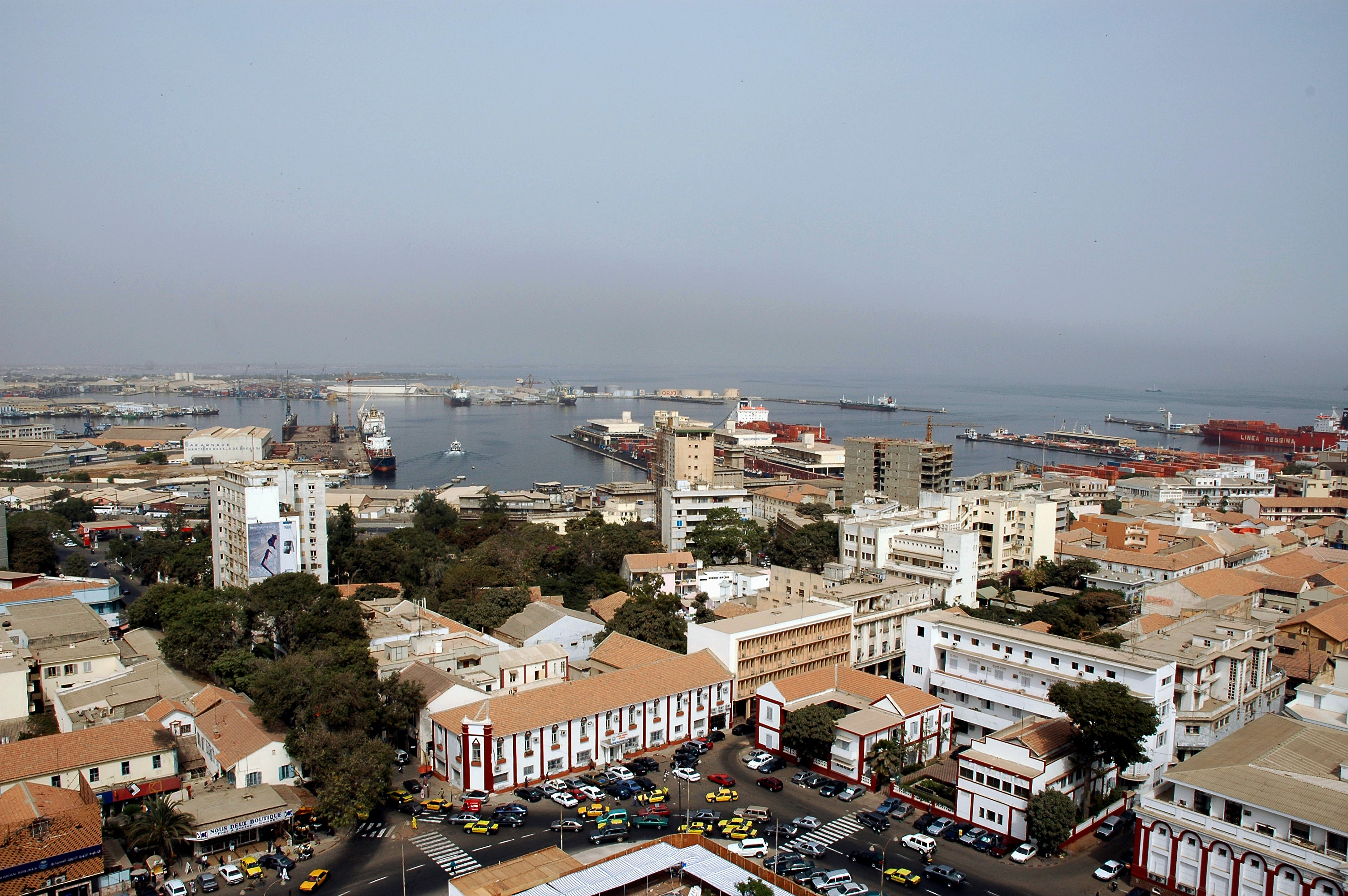The port of Dakar, Senegal
Copyright© Amaury Laporte, via flickr, CC BY-NC 2.0
Economic situation Strong role of small-scale enterprises
The capital, Dakar, is a hub for trade in West Africa. Experts believe that Senegal will further enhance this role through the African Continental Free Trade Area (AfCFTA) and the expansion of its sea ports and road and rail networks. The country is hoping for significantly increasing revenue from the extraction of offshore oil and gas, which is now beginning.
The impacts of COVID-19
Senegal's economy has been hit hard by the COVID-19 pandemic. From 2014 to 2018, the country achieved economic growth of more than six per cent per annum, one of the highest rates in Africa. Because of the impact of the pandemic, growth slowed significantly in 2020 (1.3 per cent) with services such as tourism and transport and exports most severely affected.
The government responded with a comprehensive economic stimulus package, which was supported by the German Development Ministry (BMZ) with 100 million euros. Funding was provided, in particular, for measures benefiting small and medium-sized businesses. In 2021, gross domestic product (GDP) rose by 6.5 percent. In 2022, the growth rate was 4.2 per cent. The International Monetary Fund (IMF) is expecting growth to reach 8.3 per cent in 2024, in light of the expected revenue from oil and gas production. The projection for 2025 is as high as 10.2 per cent (as at April 2024).
The new government under President Diomaye Faye and Prime Minister Ousmane Sonko has announced that it wants to reduce the country's close connections with the West – not just in political but also in economic terms. Among other things, they had said during the election campaign that Senegal would leave the West African CFA franc, a monetary union currency pegged to the euro, and that they wanted to renegotiate the contracts for oil, natural gas and mining.
The country's economy is dominated by micro and small enterprises, of which 90 per cent are estimated to belong to the informal sector. One important goal of the German-Senegalese development partnership is to improve the general framework (labour law, land law, support for business development, vocational training) so as to achieve greater formalisation of the economy – and thus encourage private entrepreneurs to invest more and create new jobs (see also Core area “Sustainable economic development, training and employment”).
The majority of the population works in agriculture or fisheries. However, agricultural productivity is low. The farming sector only accounts for about 15 per cent of gross domestic product. This is mainly due to poor soil quality, irregular rainfall, overgrazing, deforestation, and non-sustainable groundwater use, all of which are causing progressive desertification.
Consequences of climate change
Senegal's climate limits the options for agriculture – two-thirds of the country is in the Sahel zone. Although the mean annual rainfall would be sufficient to sustain productive agriculture, it does not rain regularly enough, meaning that there are recurrent periods of drought as well as incidents of severe rainfall with devastating floods.
According to scientific forecasts, Senegal must expect an increase in such extreme weather events in the future as a result of global climate change. That is why Senegal became one the first countries in Africa to take out climate risk insurance in order to better cope with the effects of climate change.
As at: 28/05/2024
